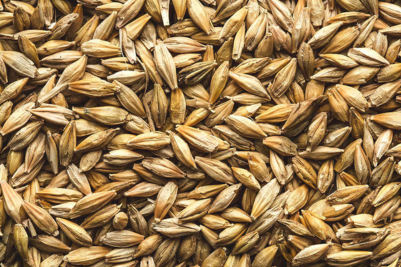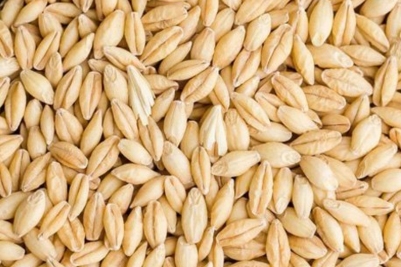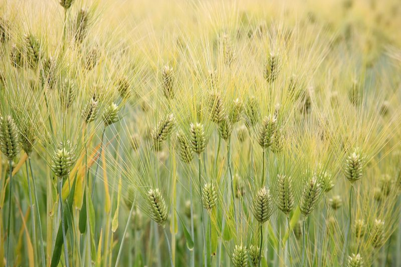COloursking
barleyBarley, (Hordeum vulgare) INDIAN JAU
Barley (Hordeum vulgare) is a versatile cereal grain that has been consumed for centuries. It has various uses, nutritional benefits, and potential health advantages. Here’s an overview:
*Uses:*
- *Food:* Barley is commonly used as a food source for humans and animals. It can be cooked as a whole grain, added to soups and stews, or processed into various food products like barley flour, barley flakes, and barley grits.
- *Malt Production:* Barley is a key ingredient in the production of malt, which is used in brewing beer and distilling whiskey. During malting, barley grains are germinated and then dried.
- *Animal Feed:* Barley is used as feed for livestock due to its nutritional content. It is often included in the diets of cattle, poultry, and other animals.
- *Health Products:* Barley grass, the young leafy shoots of the barley plant, is sometimes used to make nutritional supplements. Barley grass is rich in vitamins, minerals, and antioxidants.
*Nutritional Content:*
- *Dietary Fiber:* Barley is an excellent source of dietary fiber, including both soluble and insoluble fibers. Fiber supports digestive health, helps maintain bowel regularity, and may contribute to heart health.
- *Protein:* Barley contains a moderate amount of protein, which is essential for the body’s growth, repair, and maintenance.
- *Vitamins:* Barley provides various vitamins, including B-complex vitamins such as niacin (B3), thiamine (B1), riboflavin (B2), and vitamin B6.
- *Minerals:* Barley is a good source of minerals, including magnesium, phosphorus, manganese, selenium, and copper.
- *Antioxidants:* Barley contains antioxidants, such as beta-glucans and phenolic compounds, which may help reduce oxidative stress and inflammation in the body.
*Potential Health Benefits:*
- *Heart Health:* The soluble fiber in barley, particularly beta-glucans, has been associated with lowering cholesterol levels, thereby supporting heart health.
- *Blood Sugar Control:* Barley’s fiber content and low glycemic index may contribute to better blood sugar control, making it a suitable grain for individuals with diabetes.
- *Weight Management:* The fiber in barley helps promote satiety, which can aid in weight management by reducing overall calorie intake.
- *Digestive Health:* Barley’s fiber content supports digestive health, helps prevent constipation, and may contribute to a healthy gut microbiome.
- *Bone Health:* Barley contains minerals like phosphorus and magnesium, which are important for bone health.
*Incorporating Barley into Your Diet:*
- *Whole Barley:* Cook whole barley grains as a side dish or add them to soups and stews.
- *Barley Flour:* Use barley flour in baking for bread, muffins, or pancakes.
- *Barley Risotto:* Create a barley risotto by cooking barley in a creamy sauce with vegetables and cheese.
Always consult with a healthcare professional or a registered dietitian if you have specific dietary concerns or health conditions. Incorporating a variety of whole grains into your diet, including barley, contributes to overall nutritional diversity and health benefits.



Get In Touch
Location
1082, LIC COLONY, NEAR BANK COLONY, SRI GANGANAGAR, RAJASTHAN 335001
coloursking015@gmail.com
CALL US
+91 76657 97111
+91 76657 97111
TELEGRAM
+91 76657 97111
Hours
Mon:10am – 7pm
Tue: 10am – 7pm
Wed: 10am – 7pm
Thur: 10am – 7pm
Fri: 10am – 7pm
Sat: 10am – 7pm
Sun: Closed
